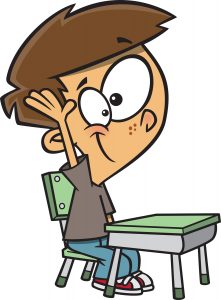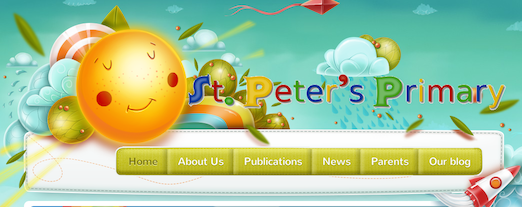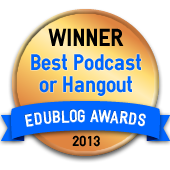We have been learning about the environment and climate change in 6th class and are busy working on our Science Blast submission.
As part of our research into climate change, we studied some shocking facts about the way it affects different countries. We have been learning about Malawi and the economy there. We watched some great Donal Skehan clips about a visit he took there and heard some interviews with locals regarding the changing climate over the past number of years.
We saw how drought affects crop yields and how heavy rain can also be responsible for destroying products. We also learned about how access to clean drinking water can affect people in developing countries. Access to clean water is not something we should take for granted.
We decided to carry out an investigation into water filtration and tried our best to filter water to make it cleaner ourselves. Here’s how we got on:
Materials:
- Bucket of mud to add to water
- Clear plastic cups
- Coffee filters, plastic bags, tissues
- Elastic bands
Method:
- Collect some mud/ muck from outside to add to clean water.
- Mix the mud into the water until it’s cloudy.
- Use 1 clear cup to test possible filters: cover the top of the cup with a choice of coffee filters/ tissue or plastic (or a combination of all) and use an elastic band to keep in place.
- Pour the water in the cup through the ‘filter’ into another clear sup.
- Assess the cloudiness of the water after passing through the filter; is it less cloudy? Do you have you to pass it through more than one time?
- Determine what material works best to filter water.
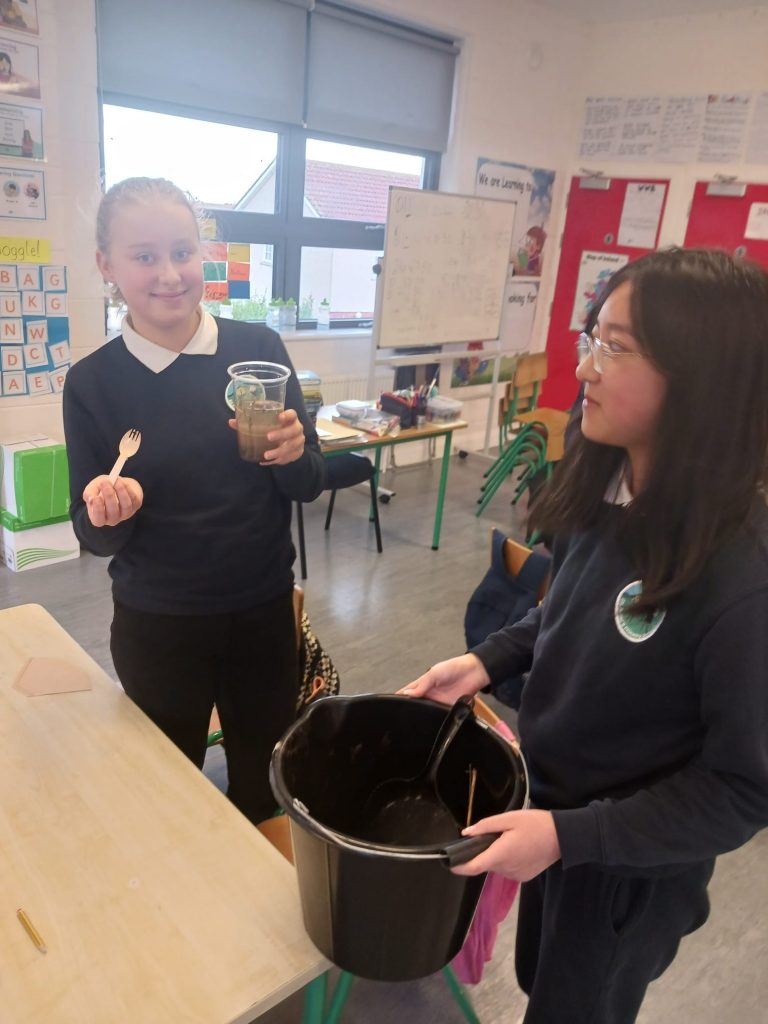
Adding muddy water. 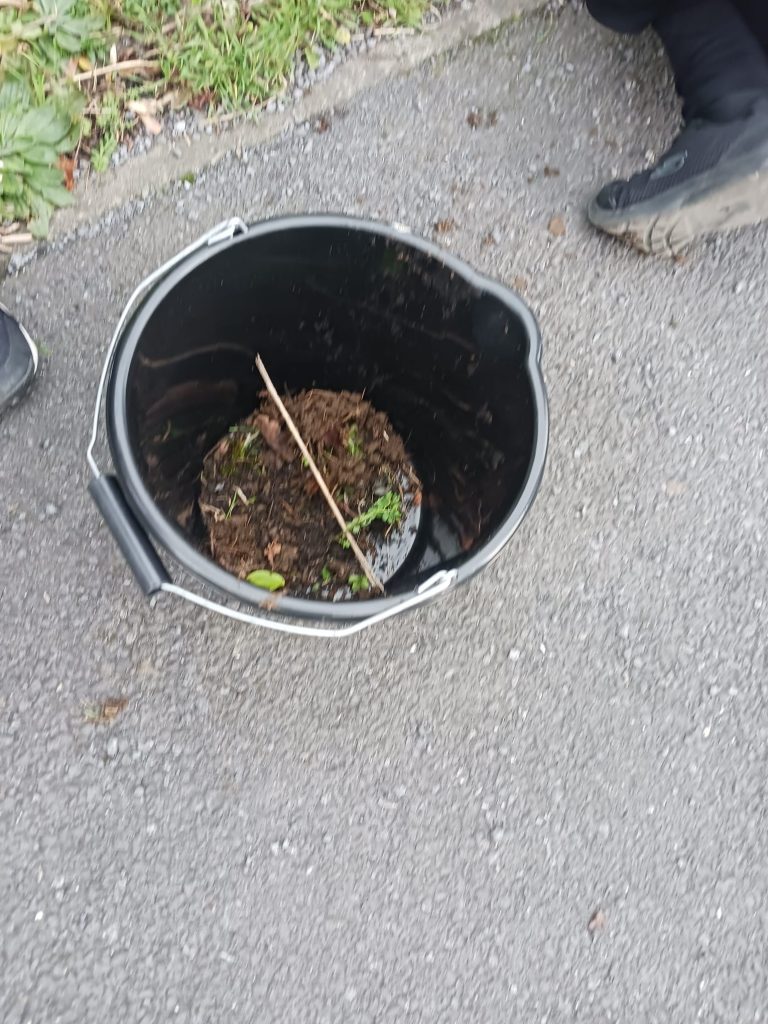
Collecting mud to add to the water first. 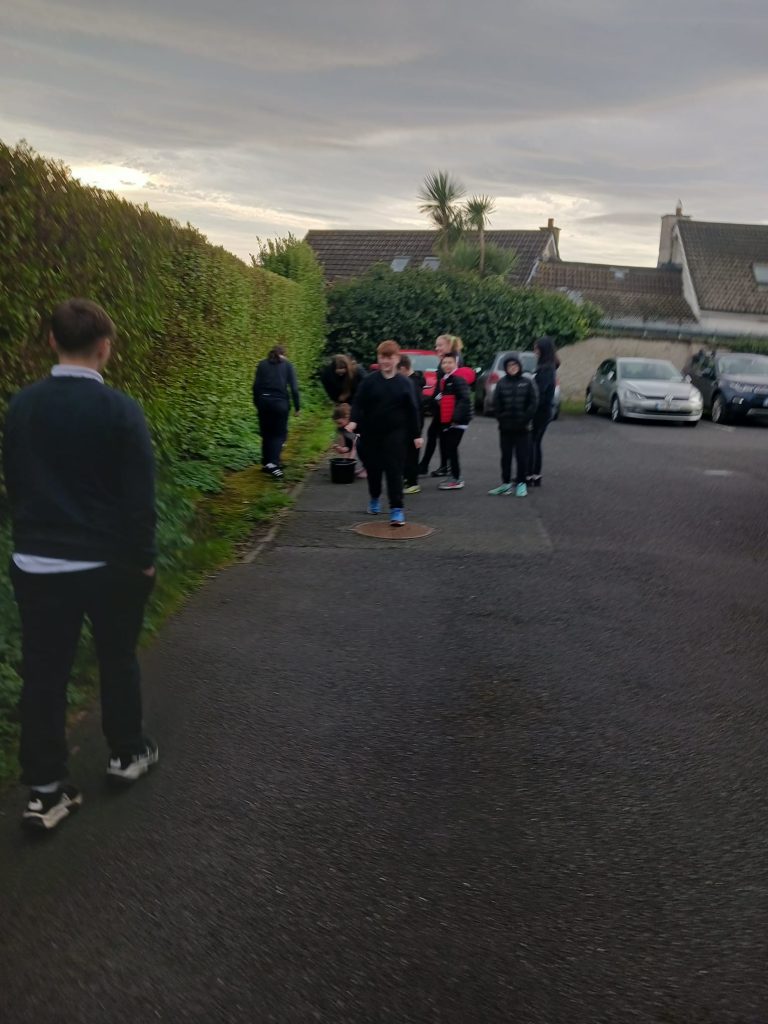
Teamwork. 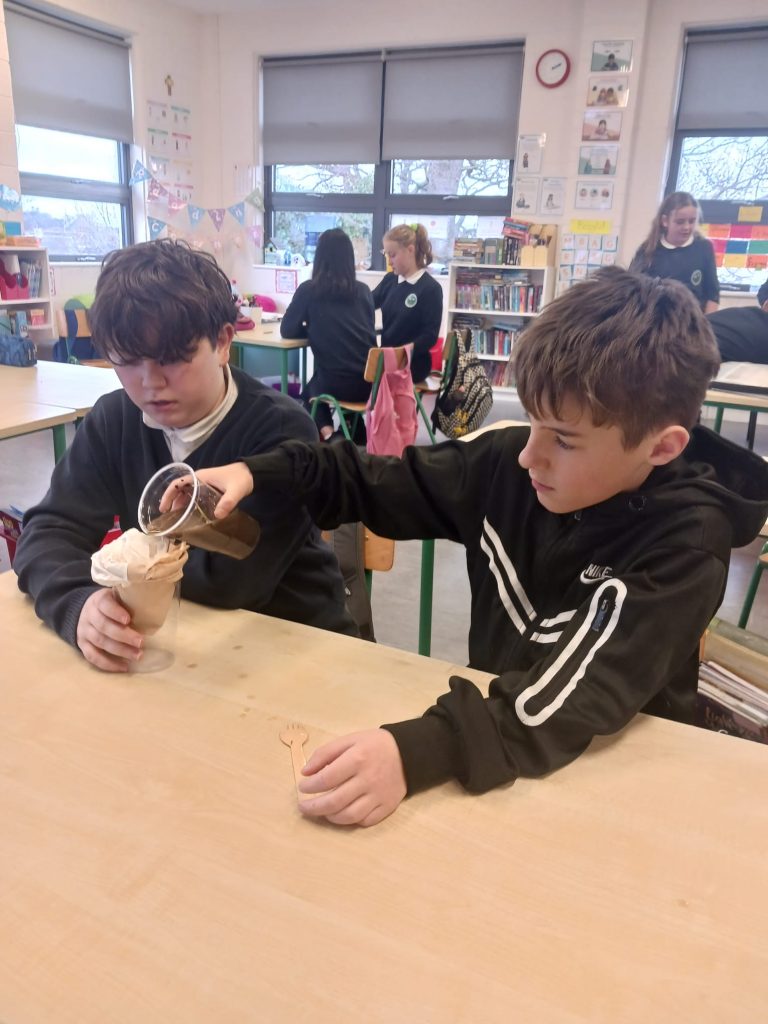
Attempting to filter. 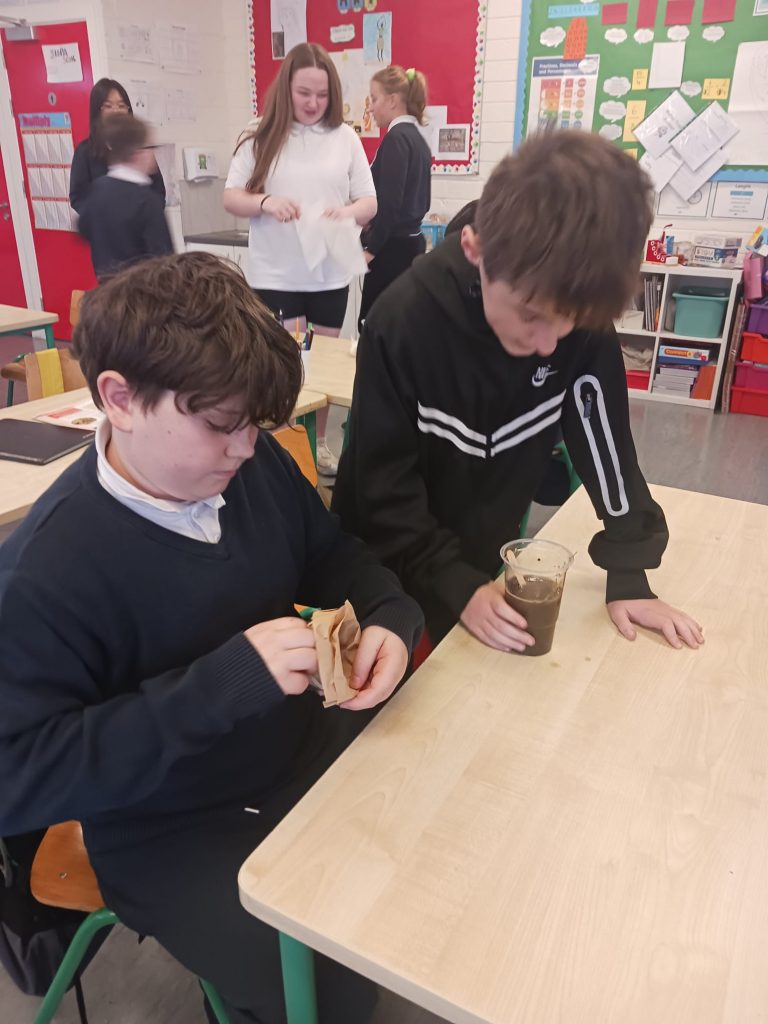
Using coffee filters first.
We were impressed by some of the teams ability to filter the mud out of the water – or so it seemed! We still knew that the water was contaminated and couldn’t be used by humans to drink or wash or cook.
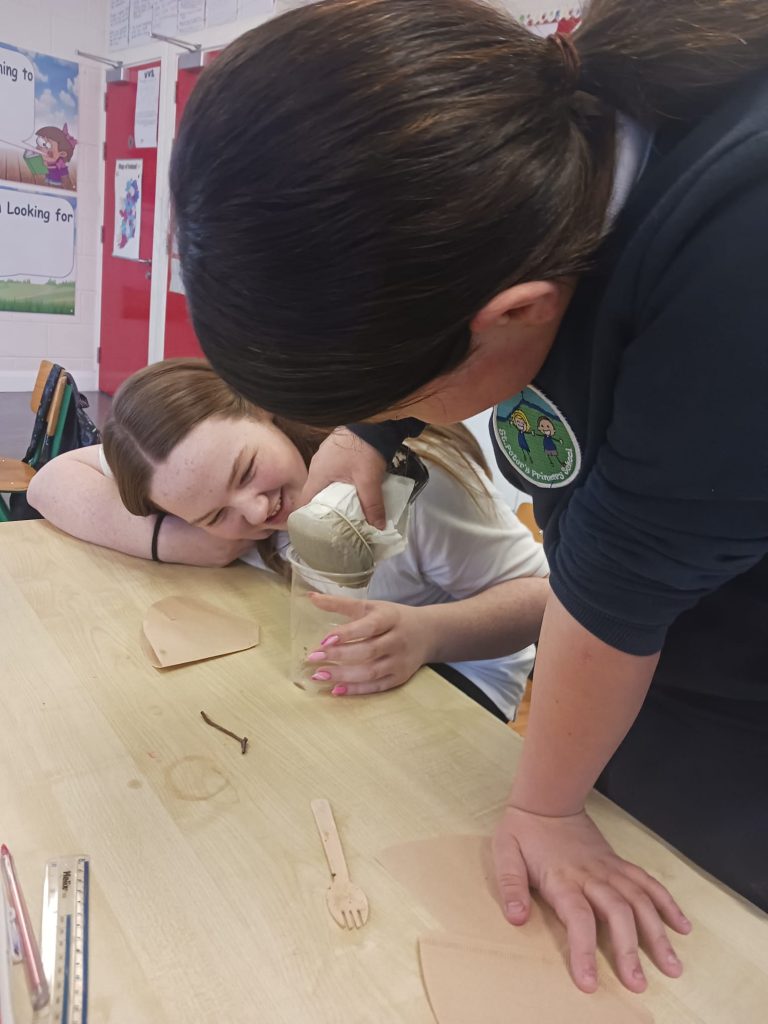
Paper and coffee filter combination. 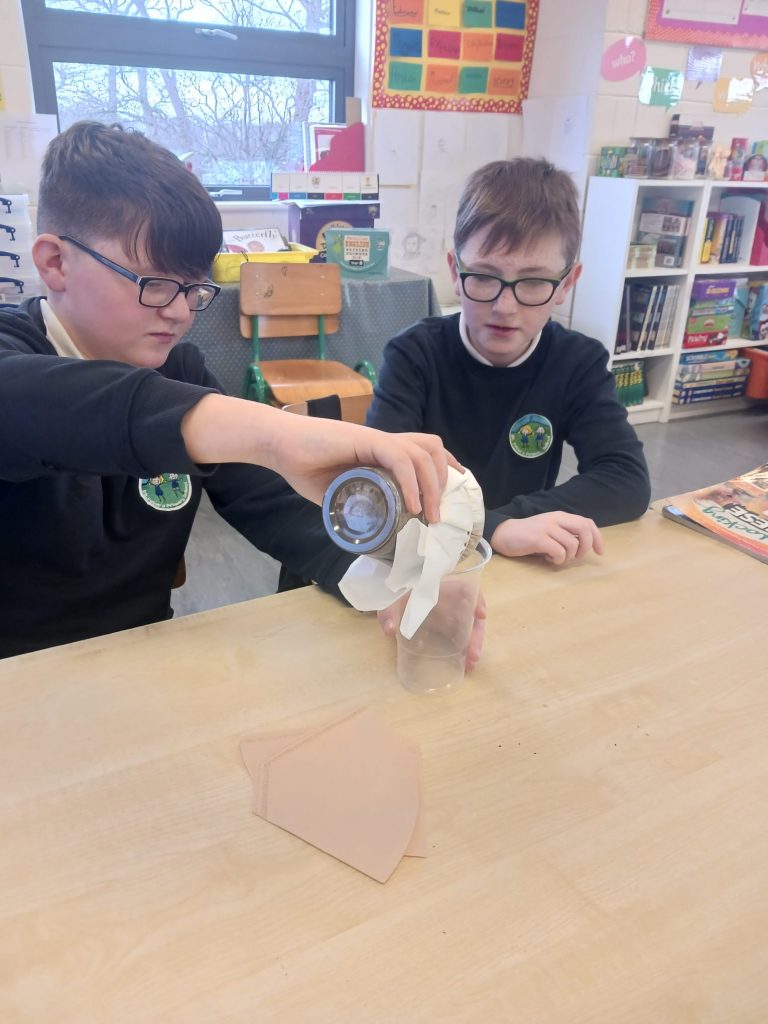
Pouring slowly to test if this helped with filtration. 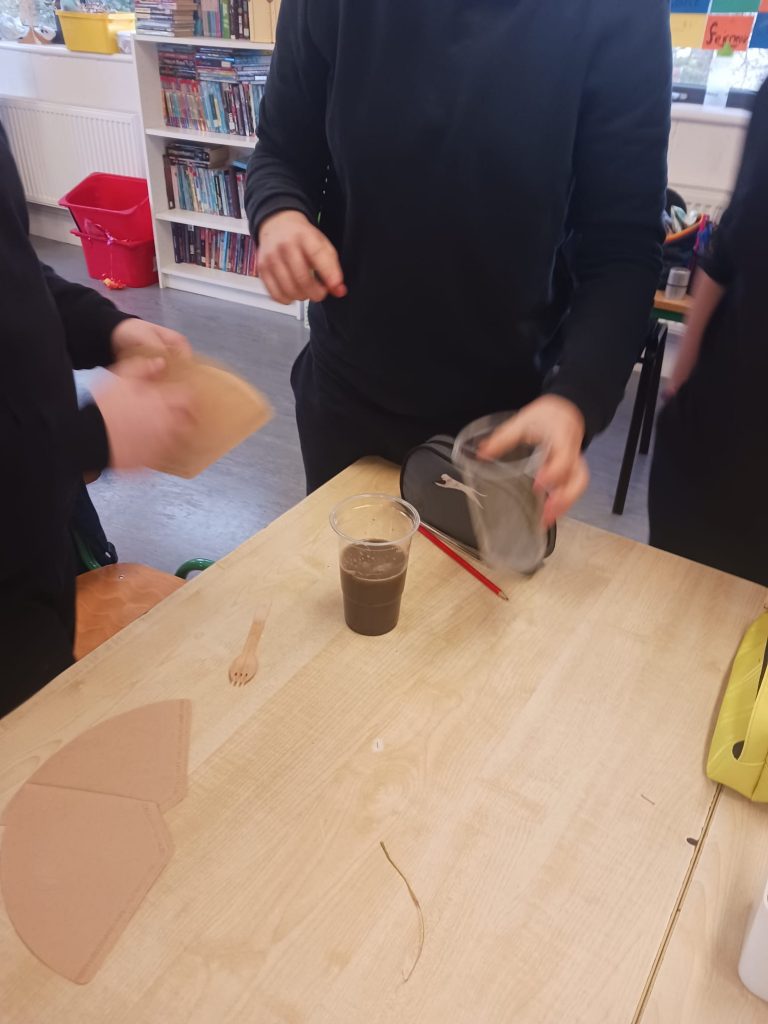
Coffee filters didn’t appear to work by themselves. 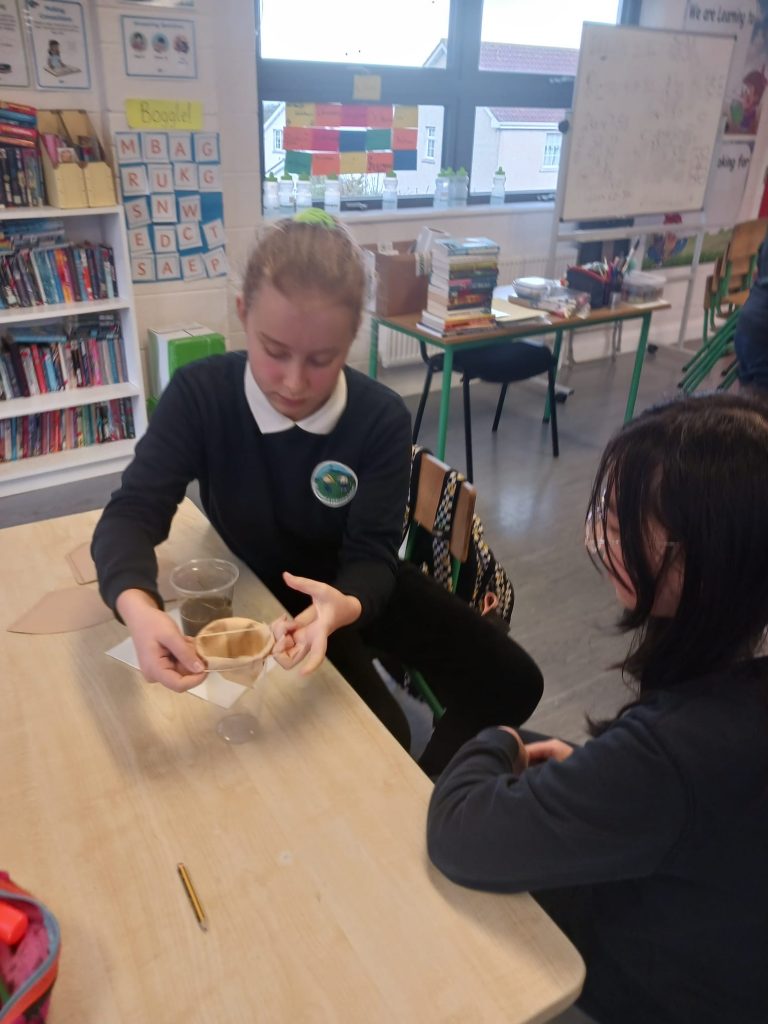
Securing with an elastic band. 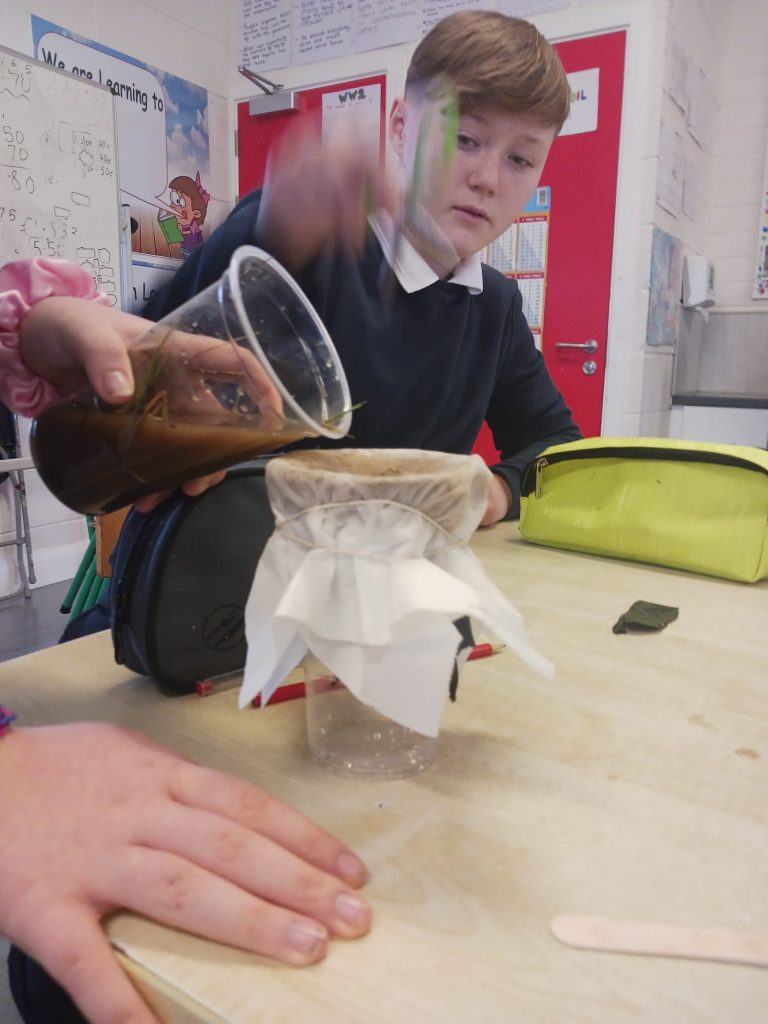
Testing. 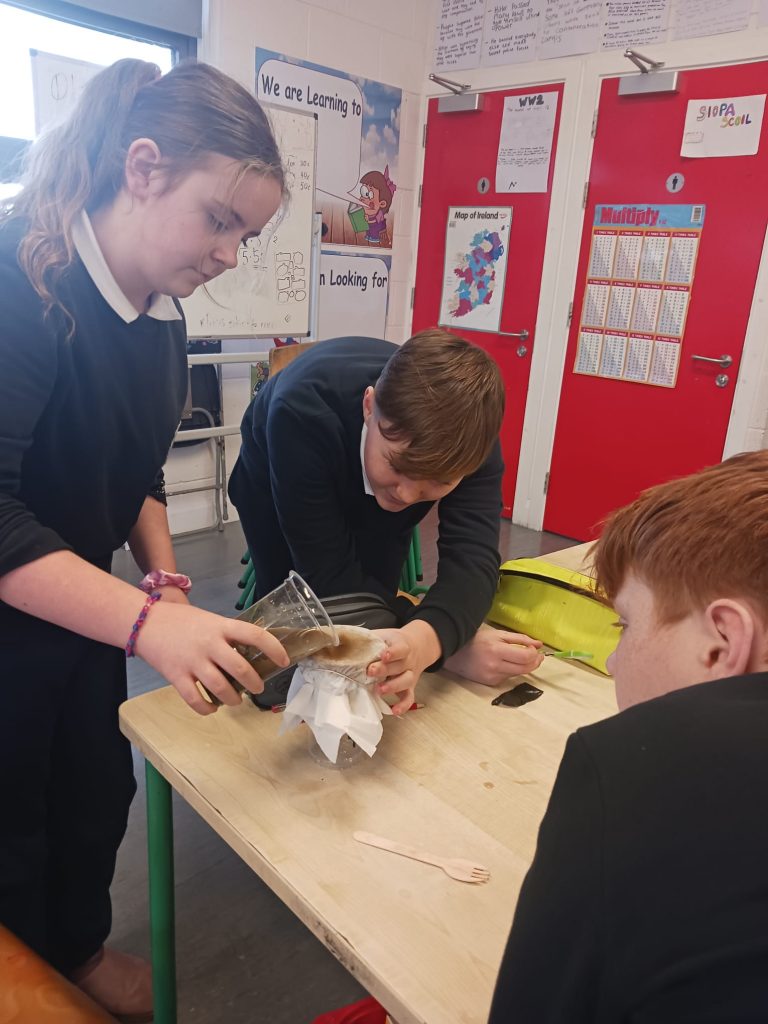
Monitoring results.
It was apparent that filtering water using a home – made system was extremely time – consuming. We think that everyone should have access to clean drinking water, no matter where they live.
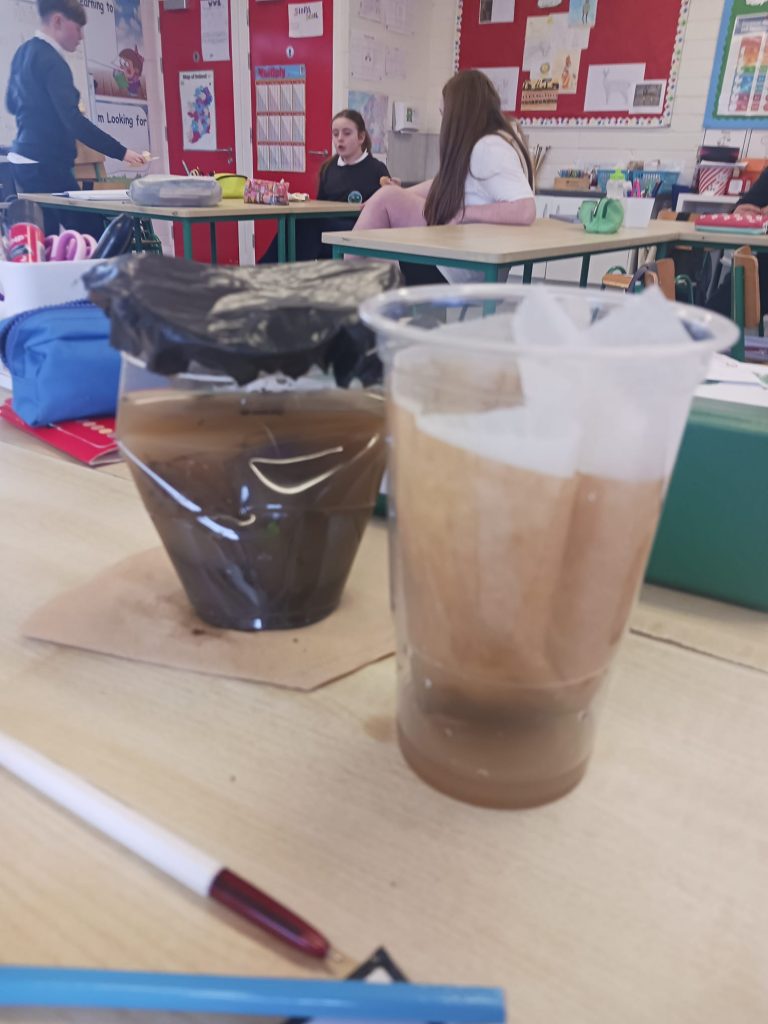
Result 1. 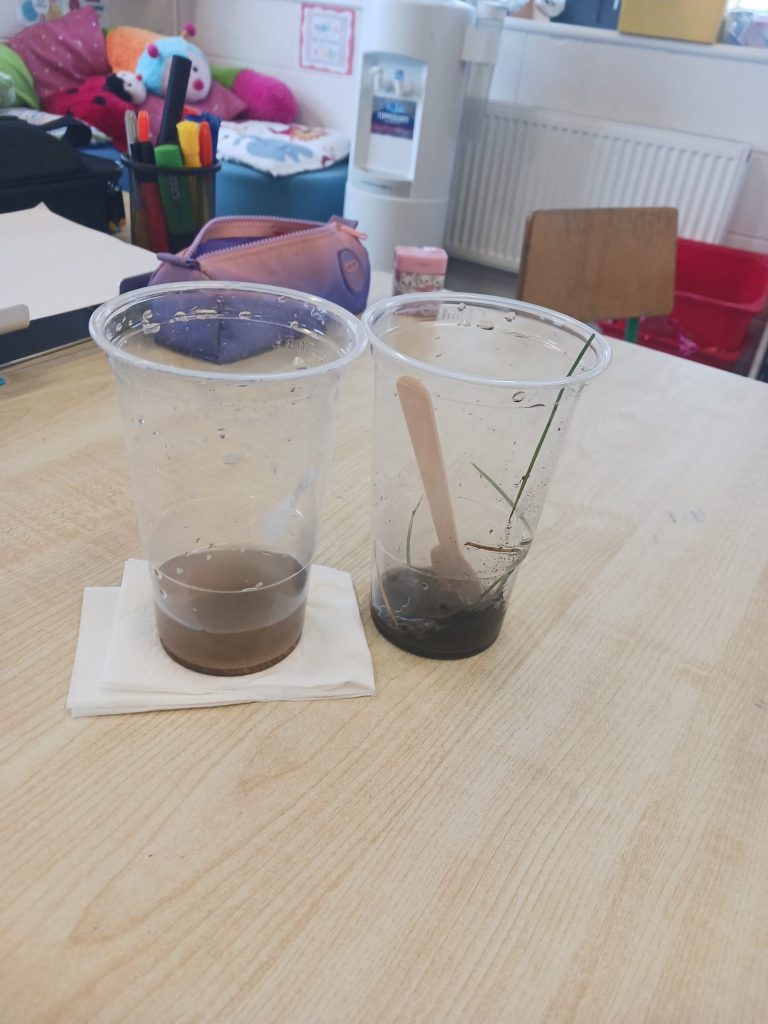
Result 2. 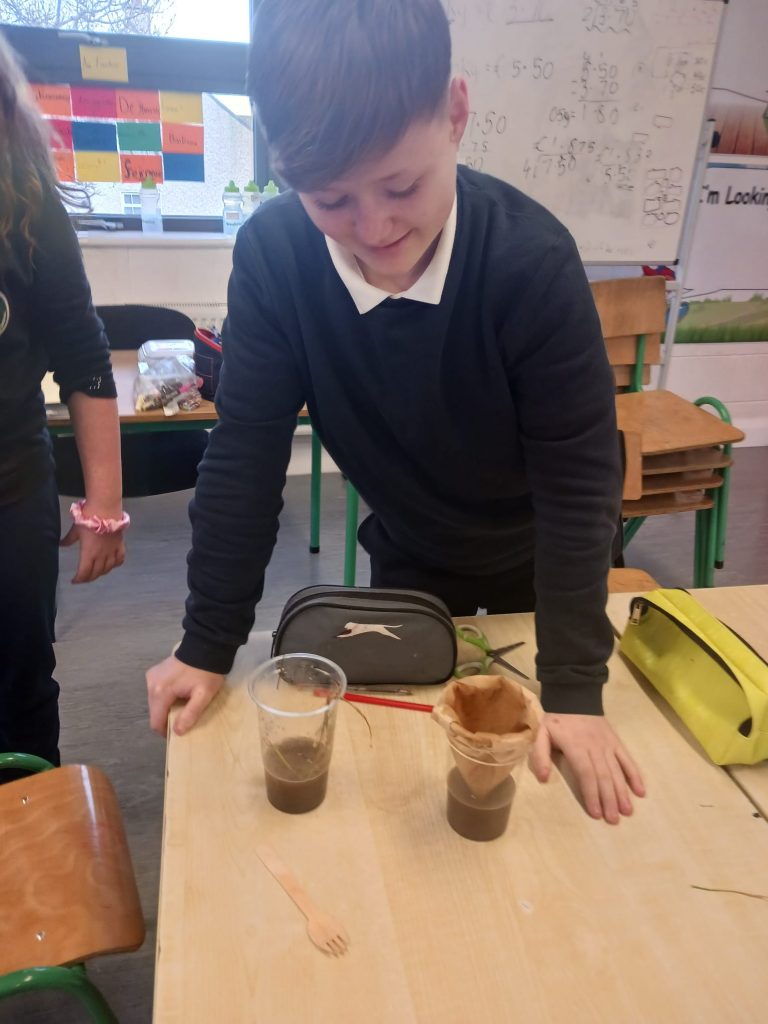
Result 3. 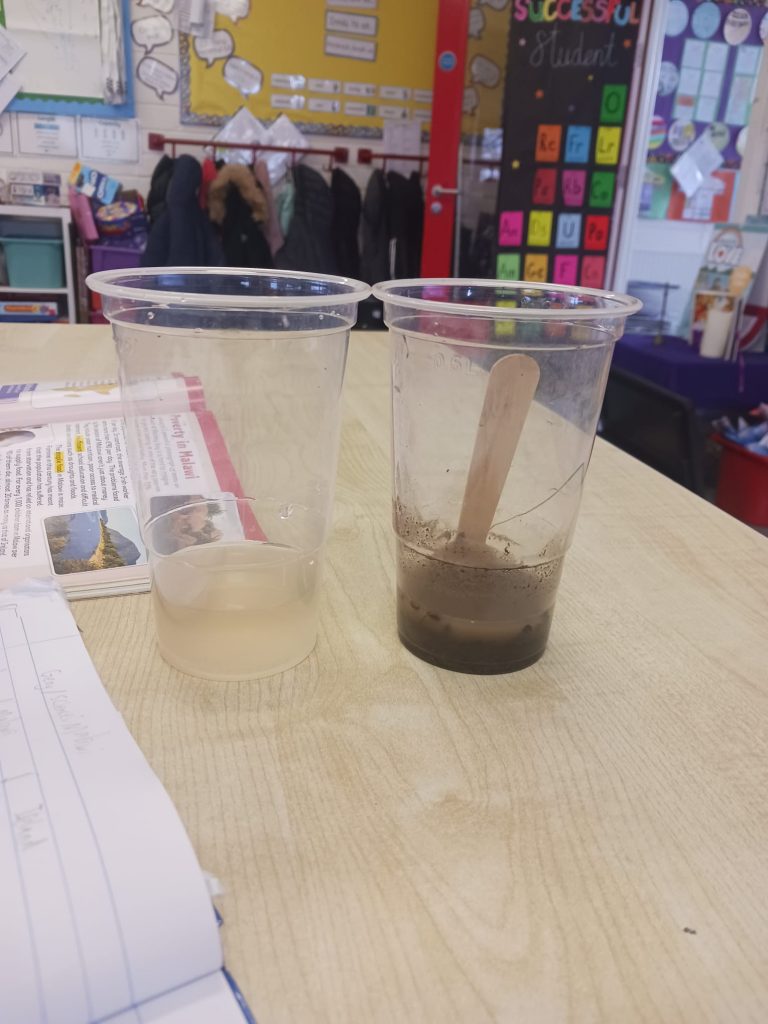
Result 4; the clearest result we achieved.

